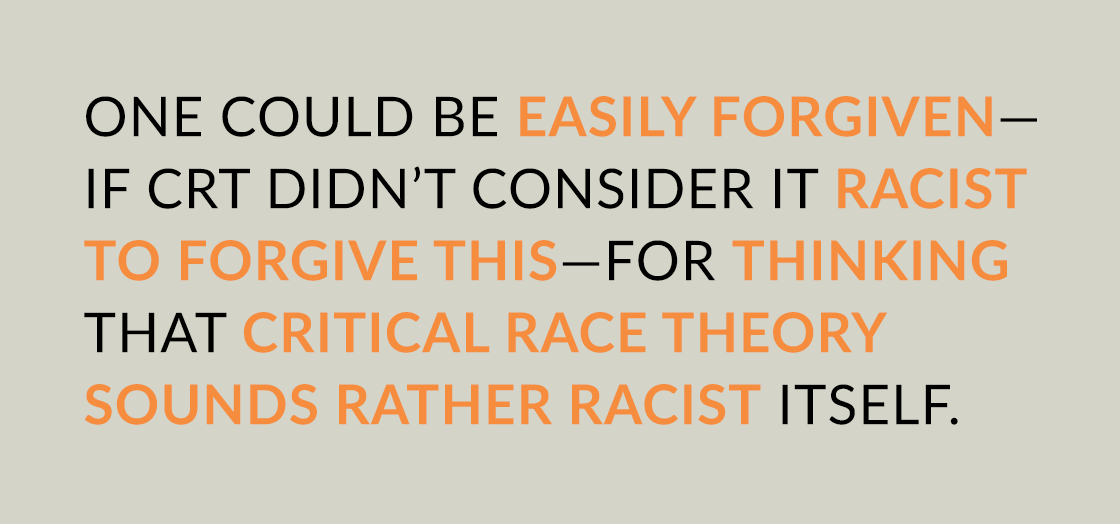
Michael H. Bernstein reviews The End of Race Politics: Arguments for a Colorblind America by Coleman Hughes, discussing the author’s analysis of neoracism and the need for a middle ground in discussions of racism.


Michael H. Bernstein reviews The End of Race Politics: Arguments for a Colorblind America by Coleman Hughes, discussing the author’s analysis of neoracism and the need for a middle ground in discussions of racism.

Is it more of a disadvantage to be born poor or Black? Is it worse to be brought up by rich parents in a poor neighborhood, or by poor parents in a rich neighborhood? The answers to these questions lie at the very core of what constitutes a fair society. So how do we know […]

Shermer and Mundy discuss: • CIA research methods • a brief history of the CIA • the purpose of intelligence agencies • Misogyny and sexism in the early decades • the skills needed to be a spy • what women notice that men don’t in the spy business • Lisa Manfull Harper feminine approach to espionage, and finding Osama Bin Laden • how women worked around the restrictions on women advancing in the CIA • Lisa Manfull Harper and the…

According to the standard model of evolutionary psychology females tend to be sexually coy, discriminating, and risk averse while males are sexually assertive, indiscriminate, and risk taking. Not so fast, says Carol Tavris in this skeptical look at the standard model, as context and species also matters in how we analyze behavior, especially sexuality.

In this provocative article on the controversial topics reparations, and what is owed to the descendants of African Americans who were enslaved, Jason Hill argues that the Civil Rights movement and ensuing acts and laws in the 1960s and 1970s have already provided a type of reparations, and that more such reparations, particularly in the form of cash payments, are unnecessary, not to mention nearly impossible to determine who is owed what.

As Skeptic Publisher Michael Shermer wrote in his Introduction to Skeptic magazine’s special issue on Race Matters (27.3), the issues outlined in this article documenting the continuation of systemically racist social structures—even as racist attitudes have improved dramatically over the past half century—mean that race still matters very much in the USA. It is thus incumbent on all of us to properly understand the causes of these issues so that we may implement a rational and science-based response to them.

Critical Race Theory (CRT) is, at root, an American phenomenon. So thoroughly is this the case that although its ideas have been used outside the United States for some time, they are often highly flavored by U.S. racial history. CRT holds that race is a social construct that was created to maintain White privilege and […]
In this essay, published on Substack today, Dr. Shermer addresses several recent articles in Scientific American of a distinctly unscientific nature related to progressive woke politics, perhaps in obedience to the British historian and Sovietologist Robert Conquest’s eponymous law that “any organization not explicitly right-wing sooner or later becomes left-wing.”
In episode 226, Michael Shermer speaks with a leading voice in support of free expression, Suzanne Nosel, on defending free speech for all, based on her book Dare to Speak. Nossel delivers a vital, necessary guide to maintaining democratic debate that is open, free-wheeling but at the same time respectful of the rich diversity of backgrounds and opinions in a changing country.

In episode 226, Michael Shermer speaks with a leading voice in support of free expression, Suzanne Nosel, on defending free speech for all, based on her book Dare to Speak. Nossel delivers a vital, necessary guide to maintaining democratic debate that is open, free-wheeling but at the same time respectful of the rich diversity of backgrounds and opinions in a changing country.
We pile on “to-dos” but don’t consider “stop-doings.” We create incentives for good behavior, but don’t get rid of obstacles to it. In episode 210, Michael Shermer speaks with Leidy Klotz about his book Subtract: The Untapped Science of Less. PLUS Do you believe that men have greater power and privilege because they are stronger, more aggressive, and smarter than women (and don’t have babies)? Think again.

Do you believe that men have greater power and privilege because they are stronger, more aggressive, and smarter than women (and don’t have babies)? Think again. Dolores Newton & Jefferson Fish present a plausible sociocultural explanation for the persistence and universality of gender inequality over thousands of years.

In episode 158 Michael Shermer speaks with Jason D. Hill, a black immigrant from Jamaica, about his eloquent appreciation of the American Dream, and why his adopted nation remains the most noble experiment in enabling the pursuit of happiness.
In episode 158 Michael Shermer speaks with Jason D. Hill, a black immigrant from Jamaica, about his eloquent appreciation of the American Dream, and why his adopted nation remains the most noble experiment in enabling the pursuit of happiness. PLUS: In the 7th CUPES report, we ask: across the political spectrum, how knowledgeable are people when it comes to the available data on fatal police shootings of Black Americans?

Shermer speaks with the polymathic polyamorous sapiosexual classically liberal evolutionary psychologist Geoffrey Miller about virtue signaling and why we all do it, how it works, why it’s not a bad thing, how it became a derogatory political meme, the role of virtue signaling in the evolution of the moral sentiments, and more…
In Science Salon # 93 Michael Shermer speaks with evolutionary psychology professor Geoffrey Miller about his book: Virtue Signaling: Essays on Darwinian Politics and Free Speech. Plus, Michel Jacques Gagné examines the reasons shocking events like the Kennedy assassination give rise to conspiracy myths.
Whether at home or on the go, the SKEPTIC App is the easiest way to read your favorite articles. Within the app, users can purchase the current issue and back issues. Download the app today and get a 30-day free trial subscription.







